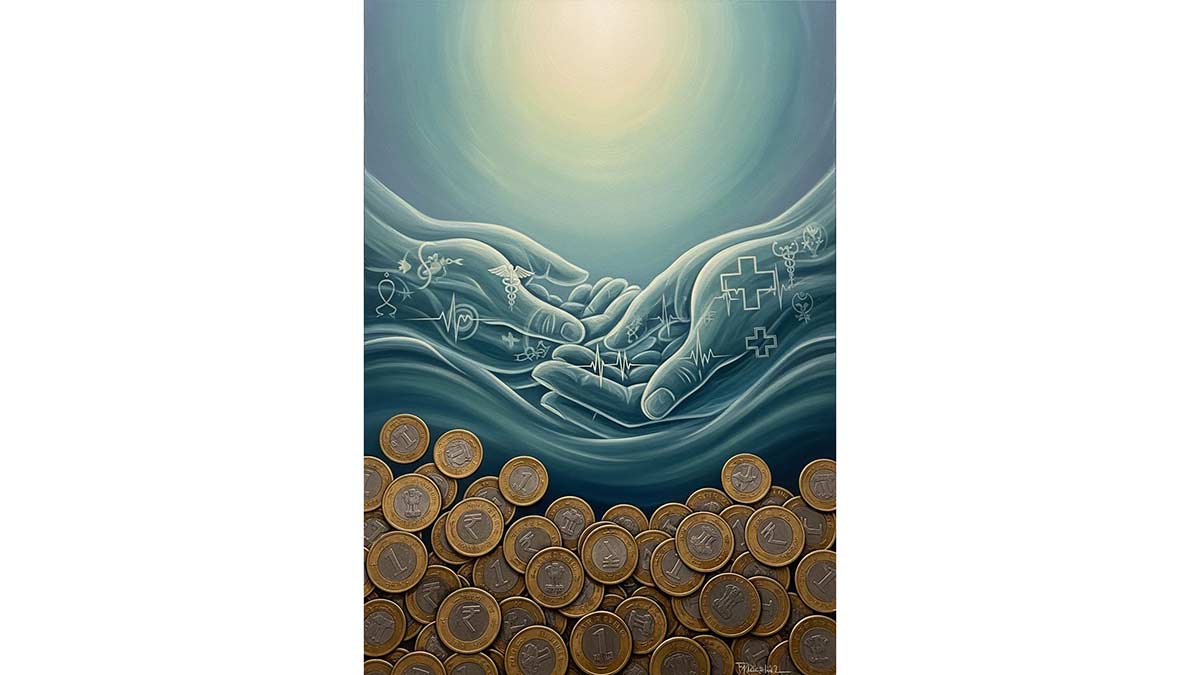How one rupee a day can transform Indian healthcare

There is an idea I have often returned to in quiet moments. It is simple, perhaps even ordinary at first glance. But the more I reflect on it, the more I believe it holds extraordinary potential, for India and for the future of our health care.
What if every person with a bank account in our country contributed just one rupee a day to health care? Not as a tax, not as charity, but as a quiet, voluntary act of shared responsibility. It may sound idealistic, but the numbers say otherwise. As of March 31, 2023, there were 294.5 crore fully protected bank accounts in India, representing 98.1 per cent of the total 300.1 crore accounts. If each of these account holders contributed one rupee daily, the nation could raise over Rs1.07 lakh crore in a single year. That figure is more than just arithmetic. It is a blueprint for what people-powered health care could look like.
Across the world, countries look to multilateral institutions, be it the World Bank, IMF or GAVI to fund their health care ambitions. But what if India, with its billion-strong ingenuity, could show a different way? One that doesn’t wait for help but begins with a single rupee. Every day. From every citizen. A simple act, with profound potential.
This thought is not entirely new. Many years ago, my father, Dr Prathap C. Reddy, introduced a small community health scheme in his native village of Aragonda. Residents contributed one rupee a day and, in return, received access to hospital care. It worked, not because it was grand, but because it was built on trust, local participation and a shared belief that everyone deserves care.
India has made incredible strides in health care. We’ve seen medical excellence, digital innovation and robust national schemes like the Ayushman Bharat Pradhan Mantri Jan Arogya Yojana. Yet, we must acknowledge the stark gaps that persist. Across the country, there are districts where a single ICU bed must serve tens of thousands. There are families who delay treatment because the nearest facility is hours away. At large, there are lives lost not to complexity, but to the absence of the most basic infrastructure—a timely ambulance, a functioning oxygen cylinder, a nurse who could have made all the difference.
In such a context, a model of voluntary micro-contributions could become a quiet revolution. It could support a wide network of primary care centres, strengthen emergency services, fund health workers in rural areas and bridge the last-mile gap between policy and people. Most importantly, it would make each of us a participant in our nation’s wellbeing.
It could also serve as a vital reserve for unforeseen public health emergencies. If the pandemic taught us anything, it is that we need flexible, immediate access to resources—not just after a crisis hits, but before. A corpus born out of collective participation could fund oxygen plants, mobile ICUs or emergency vaccine distribution without delay. In times of disaster, speed saves lives.
We often speak of our demographic dividend, of the strength in our numbers. But strength is not just in youth or productivity. It is also in empathy, in participation, in the ability to come together for something larger than ourselves.
This is not a solution to every problem. But it could be a new beginning—a way to convert collective intent into collective impact. One rupee, one person, one day at a time and sometimes, that is all it takes to change everything.
Dr Preetha Reddy is Executive Vice Chairperson of Apollo Hospitals Enterprise Limited.
Columns